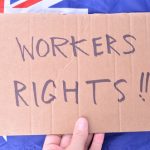The Julian Assange Saga: Secrets, Suspicions and Supreme Court Decisions

Australian citizen Julian Assange rocketed into the national consciousness in 2010.
Assange is the co-founder of WikiLeaks, a website dedicated to publishing secret information and leaks from anonymous sources. That year, WikiLeaks published thousands of secret US military and diplomatic documents, prompting the American government to launch an investigation into Assange. It was said to be one of the largest information leaks in US history and revealed the US government’s involvement in gross human rights violations and breaches of international conventions and protocols.
Sexual assault allegations
Coincidentally in 2010, Swedish prosecutors issued an arrest warrant against Assange, alleging that he had non-consensual sexual intercourse with two women while on a visit to Sweden. The allegations arose when the women went to police after having sexual intercourse with Assange and asked them to track him down so that he could give a blood test. The women were concerned that Assange might have HIV. Police advised the women that Assange could not simply be required to undergo a test, but assured them that the matter would be brought before a prosecutor.
The next day, prosecutor Eva Finné stated, “I don’t think there is reason to suspect that he has committed rape.” However, another prosecutor Karin Rosander then sought a warrant for Assange’s arrest with a view to interviewing him about the matter.
The merit of the case against Assange has been called into question by a wide range of people; from journalists to documentary film maker Mike Moore, to feminist author Naomi Wolf.
Arrest, bail and political asylum
Assange was arrested in London and taken into custody in December. He vehemently denied the allegations and saw the case as a way to rubbish his name, take him out of the picture and ultimately extradite him to the US for a politically motivated prosecution.
Assange was released from custody on strict bail conditions. He breached those terms in 2012 by taking refuge in the Ecuadorian embassy in London, seeking political asylum.
Sweden wanted to extradite Assange from London to Stockholm so that he could be interviewed over the allegations. Assange saw this as a ploy to enable the US government to ultimately seek to extradite him to face conspiracy and espionage charges arising from the leaked documents.
As Assange’s legal team could not get assurances from the Swedish Government that it would block any extradition attempts to the US, Assange has remained holed up in the Ecuadorian embassy in London to this day.
Police cannot enter the embassy to arrest him because foreign embassies are considered by international law to be the domain of the foreign country. Since Assange entered the embassy in 2012, police have constantly been outside the building, ready to arrest him if he steps foot outside.
Assange’s story has all the hallmarks of a blockbuster spy thriller, as good as anything that authors Tom Clancy and Robert Ludlum could have dreamed up.
The standoff
The matter has been at an impasse since 2012. Under Swedish law, once an arrest warrant is issued, the suspect is interviewed and a decision is then made about whether to charge them with a criminal offence.
Assange has refused to go to Sweden to be interviewed, fearing extradition to the US, and the Swedish prosecutor refused to travel to London to interview Assange.
There was little to be done to soften the two polar positions. But in March 2015, Sweden’s highest court decided to hear an appeal by Assange seeking to quash the arrest warrant.
Assange had made the application on the basis that the Swedish prosecutor had failed to progress the case and that Assange’s lawyers had not been able to access documents to help understand the allegations against him.
This sparked action from the Swedish prosecutor, who shortly afterwards announced that she would travel to London to interview Assange.
Another motivator for the prosecutor seems to be that some of the alleged crime will be subject to a limitation period in August. This means that after August, those charges will not be able to be laid.
This is an interesting turnaround, especially if the webpage This Day in WikiLeaks is accurate. In its post for 8 June 2015, there is a comment that “… during the time period Sweden was refusing to question Julian Assange in London, Sweden requested to interview 44 other people in the UK.”
Supreme Court decision
In May 2015, Sweden’s Supreme Court handed down its decision, rejecting Assange’s appeal against the arrest warrant and finding that the prosecution’s decision to finally travel to London to interview Assange in London supported the validity of the warrant.
Although this may be a short-term blow to Assange’s case, at least the investigation into his alleged wrongdoing will now be able to progress without Assange having to leave the embassy and face ultimate extradition to the US.
Assange’s legal team has indicated that it may now take the case to the European Court of Human Rights.
What about Australia?
Being an Australian citizen, Assange might have expected a level of protection and support from the Australian Government. But there has been little support for him, much to the despair of some commentators.
In 2013, the Courier Mail reported that a secret US communication revealed that Julia Gillard knew that to become prime minister, she needed to show her support the US.
Gillard branded Assange an “anarchistic criminal” for allowing US secrets to be leaked, and even set about creating new legislation that enabled Australians to be prosecuted in Australia under US law.
Greg Barnes recently reported on ‘The Drum’ that Assange’s living conditions are worse than a prison inmate’s, as he is denied natural light and fresh air for twenty-four hours a day. He says that as a result, Assange’s mental and physical health is suffering.
Barnes also said that “Assange is an Australian citizen and this nation owes it to every citizen, irrespective of their political hue or what they are alleged to have done, to ensure that they are not subject to torture or intolerable conditions of detention.”
And that is really it in a nutshell. When considering the lobbying by the federal government over the recent Bali Nine executions and the huge outcry over violations of their human rights, it is a stark contrast that Julian Assange has not been given the same attention from the government of his homeland.
While interest in the Assange case has lessened, he will no doubt continue to captivate us as new legal twists and turns unfold.
The case remains an example of the complexities of international law and diplomacy, especially with the raft of nations now involved: Great Britain, Sweden, the United States, Ecuador and Australia.






